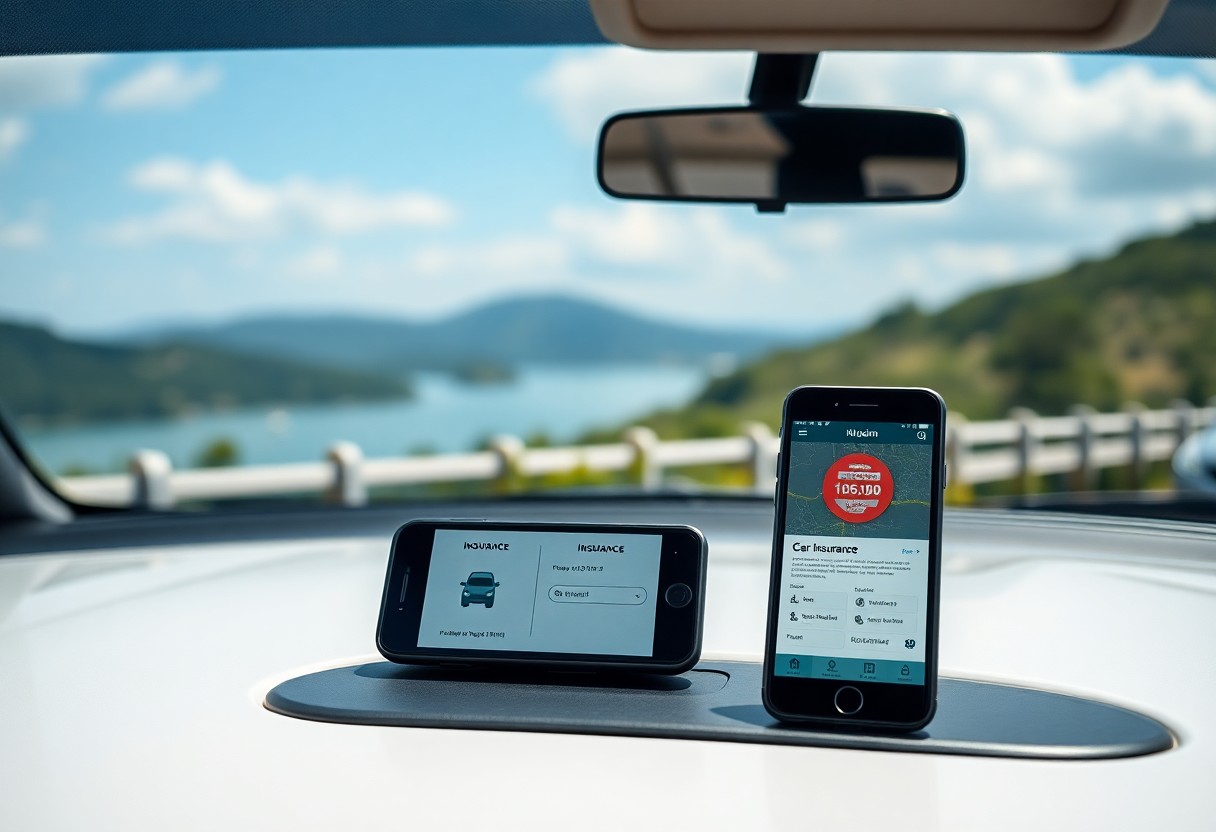When considering the various expenses of renting a vehicle, you might initially dismiss car insurance as just another cost. However, it’s essential to recognize that this insurance is your crucial defense against potentially catastrophic financial setbacks. The process of selecting the right insurance can often seem daunting, given the multitude of options available. Nevertheless, making an informed choice regarding your rental car insurance is imperative for safeguarding yourself against thousands of dollars in unexpected damages. Whether your trip is for business or leisure, a comprehensive understanding of your insurance options empowers you to make educated decisions that save you money and alleviate future stress. This comprehensive guide aims to provide you with all the necessary insights into rental car coverage, detailing everything from fundamental liability coverage to extensive insurance packages that can meet your unique needs.
Understanding the Essentials of Rental Car Insurance
Protecting yourself with rental car insurance is not just a good idea; it’s a critical safety net against unforeseen expenses. To navigate this essential aspect of car rental effectively, you must familiarize yourself with the primary coverage types available, including collision damage waiver (CDW), liability protection, and personal accident insurance. Statistics indicate that 1 in 6 rental car customers encounter some incident, so having the proper insurance coverage is not merely a precaution; it’s necessary for your peace of mind and financial security.
Comprehending Legal Insurance Requirements for Car Rentals
When renting a vehicle in any state across the U.S., it’s crucial to be aware that you are legally required to have a minimum level of liability insurance coverage along with your driver’s license. While your auto insurance may extend to cover rental cars, you should be cautious of potential coverage gaps that could expose you to substantial financial risk. Therefore, verifying your current policy and understanding the local regulations pertaining to rental car insurance is vital before you consider declining additional coverage offered by the rental company.
Understanding Financial Protection Offered by Rental Car Insurance
Securing financial protection through rental car insurance is essential to shield yourself from potentially overwhelming costs. When renting a vehicle, you will typically need to navigate coverage options, including protection for damage to the rental car (CDW), liability for damages incurred by other parties, and personal injury protection. With average repair costs for rental vehicles often exceeding $3,000, having appropriate insurance coverage is your best financial safeguard. Beyond just basic coverage, it’s important to evaluate specific factors that may affect your needs, such as your travel destination, the duration of your trip, and your personal risk tolerance. While many credit cards offer rental car protection, these benefits often come with limitations that you should thoroughly review. Understanding deductibles, coverage limits, and exclusions is essential to ensure comprehensive protection tailored to your unique circumstances.
Exploring the Key Types of Primary Insurance Coverage
When renting a car, you will encounter a variety of essential insurance coverage options designed to protect both you and the vehicle you are renting. These coverage types range from basic liability insurance to more comprehensive protection plans. Familiarizing yourself with these options is crucial for making informed decisions regarding your rental car coverage and ensuring you are adequately protected throughout your journey.
| Coverage Type | Protection Offered |
|---|---|
| Collision Damage Waiver | Vehicle damage and theft protection |
| Liability Insurance | Third-party injury and property damage |
| Personal Accident Insurance | Medical expenses coverage |
| Personal Effects Coverage | Protection for personal belongings |
| Supplemental Coverage | Additional protection beyond standard coverage |
In-Depth Look at Collision and Loss Coverage
Regarding insurance for your rental vehicle, you can expect comprehensive coverage that protects against damages resulting from accidents, theft, or vandalism. Generally, this type of coverage carries a deductible ranging from $250 to $1,000, depending on your specific plan. Any damage to your rental car will be covered under most circumstances, providing peace of mind as you travel. Understanding the details of this coverage is crucial, as it ensures that you are not left financially vulnerable while on the road.
Exploring Liability Protection Options for Rental Cars
One of the most important aspects of rental car insurance is liability protection. This coverage is critical in safeguarding you against claims made by third parties for bodily injury or property damage that may occur during your rental period. Typically, liability coverage limits can range from $50,000 to $1 million per incident, providing you with a safety net should any unfortunate events arise. Losing your personal liability protection can expose you to significant financial risks, as your policy usually covers legal defence costs and settlement payments up to your specified coverage limit. You can choose between standard liability coverage or supplemental protection to secure enhanced security during your rental experience.
Exploring Additional Secondary Insurance Options
Now that you have a solid understanding of primary coverage options, it’s time to consider additional protection layers that can enhance your rental car experience. These secondary insurance options are designed to fill crucial gaps in your coverage, offering up to 0,000 in extra protection beyond your primary insurance plan. These additional choices can be particularly beneficial when coverage is insufficient for your needs.
Maximizing Safety with Personal Protection Plans
Personal Protection Plans are designed to bolster your safety net, providing comprehensive coverage for medical expenses and protection for personal belongings during your rental period. These plans generally cost between $5 and $15 per day, and they can cover medical costs of up to $50,000 for you and your passengers. Furthermore, your valuables receive coverage against theft or damage while inside the rental vehicle, giving you extra peace of mind as you travel.
Property Protection Coverage: Safeguarding Your Belongings
In addition to personal protection, Property Protection Coverage is essential for safeguarding your belongings inside the rental car. This coverage can reimburse up to $2,500 for individual items if they are stolen or damaged during your rental period. Notably, Property Protection Coverage extends beyond just basic theft protection. It also covers incidents such as vandalism, natural disasters, and damage from accidents that occur when you are not at fault. This means you’ll receive coverage for a wide range of personal items, including electronics, luggage, and more, with typically low deductibles ranging from $50 to $100 per claim, making it a smart investment for travelers.

Understanding Specialized Coverage Options for Unique Needs
Your rental car insurance requirements may extend beyond the standard coverage options, depending on your specific travel plans and unique needs. If you’re planning an adventurous trip that includes off-road driving or transporting valuable equipment, specialized coverage options can provide tailored protection to meet your unique situations.
Exploring Supplemental Insurance Types for Enhanced Security
| Coverage Type | Protection Offered |
|---|---|
| Equipment Coverage | Protects specialized equipment and modifications |
| Off-Road Protection | Covers damage during authorized off-road use |
| International Coverage | Extends protection across country borders |
| Commercial Use | Covers business-related vehicle use |
| Extended Duration | Protection for long-term rentals |
Essential Roadside Assistance Options for Unexpected Situations
In addition to standard insurance coverage, considering roadside assistance is vital for providing support during unforeseen situations. This service encompasses 24/7 emergency support, towing services, and mechanical assistance that can be invaluable in stressful situations. Understanding your roadside assistance options can save you from hefty recovery costs while providing peace of mind as you travel.
Roadside assistance options typically include battery jump-starts, fuel delivery, lockout services, and tire changes. These services are particularly beneficial in unfamiliar areas or during long-distance trips. Rental companies usually offer basic packages starting at $5 per day, while comprehensive coverage options that include unlimited service calls may be available for a higher fee.
Analyzing Cost Considerations for Rental Car Insurance
To make an educated decision regarding rental car insurance, you must carefully weigh the daily costs against the potential out-of-pocket expenses you might incur in the event of an accident. Insurance rates typically fall within $10 to $30 per day for basic coverage, while more comprehensive protection can escalate to as much as $50 per day. Viewing these costs as an investment rather than a mere expense can significantly aid you in making better-informed decisions regarding your insurance needs.
Understanding the Factors Influencing Your Premium Rates
When it comes to rental car insurance, several critical factors can influence your premium rates:
- Vehicle type and value
- Rental duration
- Your driving history
- Location of rental
- Coverage level selected
By understanding these factors, you can better anticipate your insurance costs and potentially find ways to reduce them.
Exploring Various Payment Structures for Insurance Plans
In the realm of rental car insurance, you will encounter a variety of payment options. Most companies offer daily rates for short-term rentals, while extended rentals might qualify for weekly or monthly discounts. Your decision between upfront payment or per-day billing can significantly affect your total insurance costs.
Cost structures vary considerably among rental providers, with bundled packages often providing better value. For instance, you might realize savings of 15-20% by combining different coverage types. Additionally, some companies offer loyalty programs that can further reduce your insurance costs by up to 25% for frequent renters, making it worthwhile to explore these options.

Making Smart and Informed Insurance Decisions
Making informed choices regarding rental car insurance requires a strategic approach. Recent industry data suggests that a staggering 65% of renters end up overpaying for coverage they do not need. Your decision-making process should aim to balance cost-effectiveness with comprehensive protection. Before making additional purchases, consider reviewing your existing coverage through credit cards or personal auto insurance to avoid unnecessary expenses.
Thoroughly Evaluating Your Coverage Needs
After identifying your specific insurance needs, evaluating each coverage option against your personal circumstances is essential. Your auto insurance may already provide primary coverage up to $100,000 for rental vehicles, so reviewing this before opting for additional protection is crucial. Moreover, many premium credit cards offer collision damage waiver (CDW) at no additional cost, allowing you to save significantly. This evaluation can save you as much as $30 per day on unnecessary coverage.
Strategically Selecting Policies to Meet Your Coverage Gaps
With your coverage gaps identified, choose policies that effectively address these specific needs. Your selection strategy should prioritize key areas of coverage while avoiding redundant insurance. When determining your needs, consider your destination, rental duration, and the vehicle value you will be renting. Statistics indicate that supplementary liability insurance is particularly valuable in urban areas, where accident rates are 40% higher.
Choosing the right rental car insurance requires careful consideration of multiple factors. Personal risk tolerance, travel location, and existing coverage are critical in making a well-informed decision. Industry reports suggest that selecting the appropriate mix of coverage can save you as much as 60% on insurance costs while ensuring you maintain adequate protection. Focus on policies addressing your vulnerabilities rather than accepting standard packages that may not fully meet your needs.
Final Thoughts on Rental Car Insurance Choices
Your choice of rental car insurance is pivotal in determining the quality of your travel experience. A thorough understanding of the various coverage options available—from collision damage waivers to roadside assistance—empowers you to take control of your financial protection and peace of mind. Before you pick up your next rental vehicle, invest time evaluating your existing coverage, comparing available options, and selecting the protection that best fits your needs. Your informed insurance decisions today can spare you from significant headaches in the future, ensuring that your rental experience remains smooth and worry-free.
The Article: The Complete Guide to Rental Car Insurance: What You Need to Know appeared first on https://rentacar24.org/
The Article Rental Car Insurance: The Complete Guide to What You Need to Know First Appeared ON
: https://ad4sc.com






Comments are closed